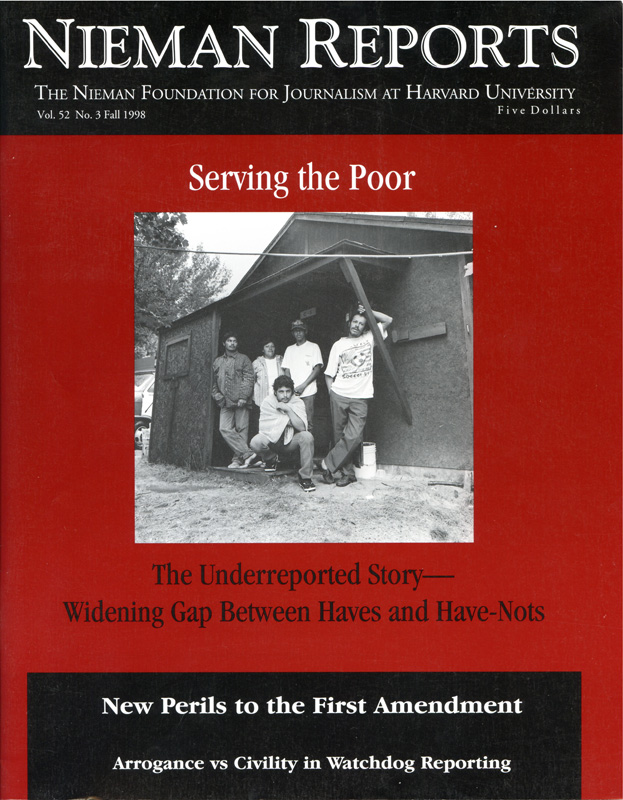America is suffering from a lapse in civility, and the trouble is, according to Stephen Carter, we are so enamored of our individual freedoms that we are not interested in restoring it.
Carter, a Professor of Law at Yale University, sees civility as the sum of the many sacrifices we are called to make for the sake of living together; it is a set of manners for democracy. A fitting metaphor he uses throughout the book is of the car: instead of traveling in trains, as we used to, where everyone followed the rules for the sake of their fellow passengers, we now travel in the comfort and obscurity of our own steel cocoons, seeing others not as people but as obstacles to get past. We carry this illusion that we travel alone, he argues, to other parts of our lives. We don’t know others, and thus believe we don’t owe them anything.
The incivility Carter describes is a result of many complex factors; the disintegration of many of our civic institutions has resulted from, among other elements, the encroachment of market values, which urge us to think first, and often only, of ourselves. Although he does not single out the media for special criticism, seeing them instead as part of the backdrop of incivility that characterizes our public—and often private—interactions with each other, there is much here from which the media can learn.
Carter develops a set of rules for civility and relates how each is important to democracy. Many of them are self-evident, concepts we learned (or should have learned) in elementary school: “Our duty to be civil toward others does not depend on whether we like them or not;” and “Civility allows criticism of others, and sometimes even requires it, but the criticism should always be civil” are two such rules. But Carter urges us to think about them in a deeper way.
Fundamentally, civility is an ethic for relating to the stranger, Carter argues. Much of civility is premised on the notion that the concept of the stranger actually exists. “A big part of our incivility crisis stems from the sad fact that we do not know each other or even want to try; and, not knowing each other, we seem to think that how we treat each other doesn’t matter.”
He cites as an example the technological advances of cyberspace, in which we are free to create our own individual experiences and, in the process, present ourselves as other than who we are. Although there are many ways the Internet makes us feel more connected, it also disconnects us. In Carter’s view, which he backs up with research, spending hours alone in front of the computer reduces the time we spend interacting with others. The less need we have of other people, he argues, the greater risk that we will begin to devalue them. It is also much easier to be rude to those we do not know and cannot see or hear.
Carter also criticizes media outlets that provide us with exactly what we ask for—only what we want to read. Newspapers don’t have to exercise any news judgment at all that way, he argues, where previously the news judgment of the editors helped create our common experience. And the more we are able to tailor the world to our liking, he states, the less civil we are likely to be. When we can search until we find the answers we like, the possibility of real conversation taking place is lessened.
The key to restoring civility, in his view, is “for all of us to learn anew the virtues of acting with love toward our neighbors.” And this depends on returning to the concepts of awe and sacrifice. Religion is his source—in his case, Christianity—and he is explicit about his beliefs. But rules for civility are found in other traditions, and, he reminds us, one need not be religious at all to appreciate their wisdom. Many are not going to like—or agree with—his view that religion is the only source for transcending our human tendency to look out for our own needs. But he makes a convincing argument that religion is one of the few institutions that teaches us to put our own needs aside for the sake of the greater good.
Carter’s book is thoughtful and thought-provoking. He offers a good reminder that we are all in this together—maybe in separate cars, but headed in the same direction.
Molly Marsh is Editorial Assistant of Nieman Reports.



